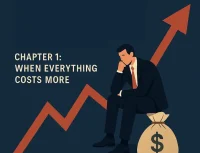Privacy is an difficult concept in our current state of interconnectedness, where lines between what is personal and what is public blur.
Central to this issue are background checks and public records—tools that can both protect and intrude. Gaining insight into how these mechanisms operate provides clarity on their impact on our notions of privacy.
The Sharpening Lens of Background Checks
Background checks have become a standard procedure for job applications, tenancy agreements, and even online dating.
Institutions and individuals alike use these checks to affirm trust, exploring a candidate’s criminal history, credit scores, and sometimes social media presence.
In a society prioritizing security, such due diligence may seem justified.
However, the pervasive use of background checks can also cast a shadow on a person’s past, no matter how long ago. A mistake made decades ago continues to haunt us, severely limiting opportunities for reform and rehabilitation.
In many states, the concept of a “clean slate” is hard to achieve, with minor infractions visible for employers to scrutinize forever.
There lies a question begging for answers—at what point do these checks become tools of judgment, rather than prevention?
For those emerging from hard pasts, repeated denial on the grounds of past errors can be disheartening. It creates a cycle where individuals face barriers to employment and housing, often driving them back to conditions that fostered their initial challenges.
There is a need for companies to assess the entirety of an individual, instead of simply what appears on paper, helping support reintegration rather than perpetuating a cycle of exclusion.
The growing role of technology in conducting background checks has introduced new dimensions to the conversation.
Automated systems can trawl vast databases, sometimes delivering incomplete or inaccurate results. When a single error can define a person’s opportunities, it underscores an urgent need to ensure the accuracy and fairness of these automated evaluations, thereby respecting one’s right to privacy amidst the pursuit of comprehensive due diligence.
To navigate background checks effectively, it’s important to be informed about their varying functionalities.
Resources outlining the best background checks available provide vital insights for both individuals and employers, offering transparency and aiding in the holistic evaluation of applicants.
Public Records: A Double-Edged Sword
Public records, by their nature, are intended to be available to all. Birth certificates, marriage licenses, property ownership, and court documents—these are records meant to keep society transparent.
Yet, with this openness comes potential misuse.
Previously, accessing public records was often cumbersome, requiring trips to physical archives. Now, most of these records are a click away.
This ease of access raises legitimate concerns about stalking, identity theft, and unwanted intrusion into personal lives.
When one’s life’s dossier is tangible to anyone online, a balance needs to be struck between openness and privacy.
Yet, public records aren’t only about openness—they also enable important verification processes, particularly in journalism and research. When deployed responsibly, they ensure accountability, unveiling information that those in power might prefer to keep hidden.
This access can empower citizens to engage more deeply with their communities, fostering informed decision-making. Nevertheless, regulating access becomes vital to prevent irresponsibility that compromises personal security.
As more people become aware of the breadth of their personal information accessible through public records, there is a rising call for legislative reform.
Laws need to evolve at a pace matching technological capabilities, placing appropriate limits on what can be accessed and how such information can be used. Crafting a framework for limiting public access, without entirely clouding transparency, poses an ongoing challenge for policymakers worldwide.
Legal and Ethical Concerns
The accessibility of background checks and public records touches upon ethical and legal challenges. While laws like the Fair Credit Reporting Act strive to provide guidelines, the edges remain fuzzy.
Disputes over what should be available and what remains private are common.
In particular, marginalized communities often bear the brunt of these debates, where admission of certain vulnerabilities in background checks leads to further discrimination.
The legal landscape is muddied further with discrepancies between state and federal regulations. These inconsistencies result in loopholes for some and complex legal mazes for others.
It’s a gray area that requires ongoing scrutiny and thoughtful legislative action to provide clarity.
The Way Forward
Advocates for privacy have long argued for a reimagining of these tools. Proposals suggest refining the practice of background checks to focus on recent, relevant information, shifting away from punitive to restorative models.
With public records, the aim should be crafting measures to protect individuals from exploitation while maintaining societal accountability.
At the end of the day, the discussion surrounding privacy, background checks, and public records is not merely an academic exercise. It’s deeply personal, affecting individuals’ rights and choices. As society treads on this tricky path, it must balance safety with justice, ensuring that the weight of one’s past doesn’t suffocate their future.




